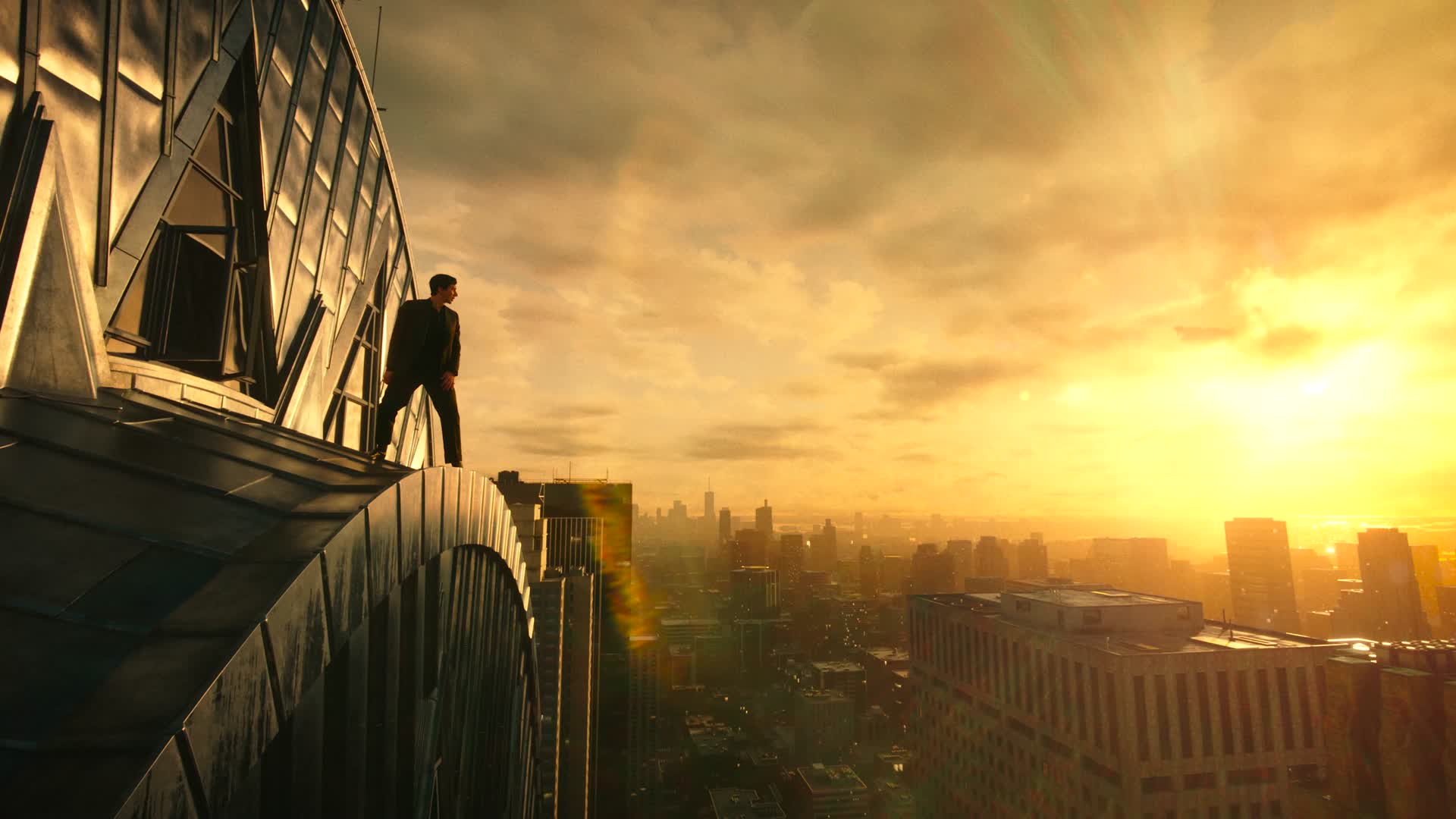Was Megalopolis A Flop? Unpacking The Box Office Story
So, was Megalopolis a flop? That's a question many folks are asking about Francis Ford Coppola's ambitious new film. It's almost as if the movie, a passion project for the legendary director, seemed to be heading for a tough time at the box office right from the start. Many people were watching to see how this grand vision would play out financially, and the early signs, well, they weren't exactly sparkling, you know?
There was a lot of buzz surrounding Megalopolis, partly because of Coppola's name and partly because it sounded like such an epic undertaking. But even with all that anticipation, the word started to get around that this film, in some respects, was looking like it could be a financial disaster. It's a bit like a big, important event that everyone talks about, yet the outcome isn't what some might have hoped for, actually.
We're going to break down the biggest reasons that Megalopolis, as its title does not bother to deny, faced such a challenging path at the box office. This movie, a grandiosely personal vision, appeared fated to lose a lot of money, and we'll explore why many are calling it a box office mega flop (olis). It's quite a story, really, about a film that aimed high but found itself in a difficult spot.
Table of Contents
- The Opening Weekend Numbers
- Why the Financial Struggle?
- What the Reviews Said
- Coppola's Perspective
- The Story and Its Players
- The Future of a Controversial Film
- Frequently Asked Questions About Megalopolis
The Opening Weekend Numbers
When Megalopolis finally opened, the numbers came in, and they were, well, pretty much what many had predicted. The film opened to an estimated $4 million domestically. This was across just over 1,850 screens, which is a fair number of places to show a movie, yet it still struggled, you know?
This opening figure meant it failed to crack the top five on the charts, debuting instead in sixth place. That's a position that, to be honest, isn't ideal for a film with such a high profile. It placed behind other movies, too, like Speak No Evil, which pulled in $4.3 million in its third weekend, and even an Indian import, Devara Part 1, which managed $5.6 million. So, it had some tough competition, apparently.
Most box office analysts, as a matter of fact, were predicting disaster for this movie. Surveys that track ticket sales had suggested that Megalopolis could arrive to as little as $5 million in weekend ticket sales in North America. The actual numbers, unfortunately, were even lower than those already low expectations. It really did bomb spectacularly at the box office, which is a big deal for a film like this.
The early projections had Megalopolis as one of the biggest box office flops of the year. Now that the numbers are in, things are even worse than anyone could have predicted. It’s a box office disaster, plain and simple, and many are calling it a box office mega flop. This kind of performance, frankly, leaves many wondering what happened.
Why the Financial Struggle?
So, what are the biggest reasons that Megalopolis flopped at the box office? Well, Francis Ford Coppola's passion project looks like it's going to be a financial disaster, and there are a few ideas about why this ambitious film bombed so hard. One big piece of lore around this movie is that it's a grandiosely personal vision. This fact, in a way, seemed fated to lose a lot of money at the box office, you know?
The film, which was touted as a revolutionary epic, has spectacularly underperformed. In what could be described as one of the most unexpected box office failures of 2024, Francis Ford Coppola's ambitious passion project really struggled. It's almost as if the very ambition of the film contributed to its financial woes, as a matter of fact.
For all of its good intentions, Megalopolis is described as a confusing, bloated disaster. This kind of description, naturally, doesn't usually lead to big box office success. When a movie is hard for audiences to grasp, or feels too long and unfocused, it can really hurt its chances of bringing in a crowd. So, the content itself, in some respects, played a role.
The fact that it was such a personal vision for Coppola also meant it might not have had the broad appeal that big-budget movies usually need to succeed financially. A film that is very specific to a director's unique artistic vision, while often praised by critics, sometimes struggles to connect with a wider audience. This can certainly affect ticket sales, you know?
The movie's financial performance has led many to say that Coppola's latest epic might be the greatest failure of all time in terms of box office returns. This is a very strong statement, and it highlights just how disappointing the numbers have been for a film from such a celebrated director. It's a tough pill to swallow for anyone involved, actually.
What the Reviews Said
When we look at what reviews say about Megalopolis, a pretty consistent picture starts to emerge. The film, for all its grand aspirations, has been called a confusing, bloated disaster. This kind of feedback, to be honest, doesn't usually help a movie find its footing with the general public. Critics, it seems, found some real issues with the way the story unfolded, you know?
The idea of it being "confusing" suggests that the narrative might have been hard to follow, or that the themes were not presented in a clear way. A "bloated" description often means the movie felt too long, or that there was too much going on without a clear focus. These are common criticisms that can really impact how an audience receives a film, you know?
When a film is described as a "disaster" in its reviews, it creates a very strong impression. This kind of language can quickly spread and influence potential moviegoers, making them less likely to buy a ticket. It's a very powerful word, "disaster," and it certainly doesn't paint a pretty picture for a movie trying to make its mark, you know?
Even with Francis Ford Coppola's legendary status, the critical reception for Megalopolis seems to have been quite harsh. This can be a tough blow for any film, especially one that has been a passion project for so long. The reviews, in some respects, likely played a part in its poor box office performance, as people often check what others are saying before deciding to see a movie, you know?
The reviews suggest that while the film might have had good intentions, its execution left many viewers feeling lost or overwhelmed. This kind of audience experience, frankly, can lead to negative word-of-mouth, which further hurts a film's chances. It's a ripple effect, where early critical reactions can really shape a movie's fate in the market, you know?
Coppola's Perspective
Director Francis Ford Coppola still will not release his 2024 flop Megalopolis on DVD, and now he is explaining why. This decision, to be honest, is quite interesting, especially given the film's box office struggles. It's not every day a director holds back a release like that, you know?
Coppola has stated that "the movie will long outlive any Monday morning snickering." This is a very powerful statement, actually, suggesting that he believes in the film's lasting artistic merit, regardless of its immediate commercial performance. It's almost as if he sees the movie as something that will be appreciated much later, long after the initial reactions have faded, you know?
This perspective highlights a common divide between artistic ambition and commercial success. For Coppola, it seems, the immediate box office numbers or critical snickering are less important than the film's potential to endure as a piece of art. He's making a statement, in a way, about the long game of filmmaking versus the short-term market reactions, you know?
His refusal to release it on DVD right away could be a way of controlling the narrative, or perhaps waiting for a time when the film might be viewed with different eyes. It's a bold move, considering how quickly movies usually move from theaters to home video. This decision, naturally, adds another layer to the story of Megalopolis and its reception, you know?
The fact that he is explaining his reasons suggests he wants people to understand his vision and his commitment to the film. He's basically saying that while the movie might be a box office disaster now, its true value will be seen over time. This kind of confidence, frankly, is something you don't always see, especially after such a tough opening weekend, you know?
The Story and Its Players
The film stars Adam Driver as Cesar Catilina, who is a visionary architect. He's basically trying to rebuild New York, which is now called "New Rome," into a futuristic utopia named Megalopolis. This concept alone, you know, sounds very ambitious and grand. It's almost like a modern take on an ancient epic, actually.
Opposing Catilina's dream is Giancarlo Esposito, who plays Franklyn Cicero, a corrupt mayor. So, you have this classic conflict between a visionary trying to build something great and a political figure who is, in some respects, standing in the way due to corruption. This kind of dynamic, naturally, often makes for compelling storytelling, you know?
The premise itself, transforming a familiar city into a futuristic utopia, is quite intriguing. It allows for a lot of creative freedom in terms of world-building and visual design. However, as mentioned earlier, for all of its good intentions, Megalopolis is described as a confusing, bloated disaster. This suggests that perhaps the execution of this intriguing premise didn't quite hit the mark, you know?
The cast, with names like Adam Driver and Giancarlo Esposito, usually brings a lot of talent and draw to a film. Their presence would typically suggest a movie with a certain level of quality and appeal. Yet, even with such strong actors, the film still struggled significantly at the box office. This indicates that the issues might have been deeper than just the performances, you know?
The core of the story, the clash between idealism and corruption in a reimagined city, is a very rich theme. It's a concept that could resonate with many audiences. However, the way it was brought to the screen, apparently, led to it being perceived as confusing and unwieldy, which ultimately hurt its chances of connecting with viewers. It's a shame, really, for such an interesting idea.
The Future of a Controversial Film
Francis Ford Coppola’s Megalopolis had a rough opening weekend, and it's certainly been called one of the most unexpected box office failures of 2024. But the director's stance that "the movie will long outlive any Monday morning snickering" suggests a different kind of future for the film. It's almost as if he believes its true legacy isn't tied to immediate financial success, you know?
This perspective invites us to think about how films are remembered over time. Sometimes, movies that struggle at first find a new audience years later, gaining cult status or being re-evaluated by critics. It's a bit like certain works of art that aren't appreciated in their own time but become classics later on, actually.
The fact that Coppola is holding back the DVD release also plays into this idea of a longer lifespan for the film. By not rushing it to home video, he might be trying to preserve a certain mystique or allow for a more considered viewing experience down the line. This approach, in a way, is a testament to his belief in the film's artistic value, regardless of its initial reception, you know?
While Megalopolis is currently seen as a box office mega flop (olis), its journey is far from over in terms of how it will be discussed and perceived. The conversation around it, frankly, is just beginning, especially with the director's strong feelings about its enduring quality. It’s a very unique situation, you know?
So, even though the numbers are in and things look grim financially, the story of Megalopolis isn't just about its opening weekend. It's also about a director's passion, a grand vision, and the hope that a film, despite its initial struggles, can find its place in cinematic history. It's a very interesting point to consider, how time changes perspectives, you know?
Frequently Asked Questions About Megalopolis
How much money did Megalopolis make at the box office?
Megalopolis opened to an estimated $4 million domestically. This figure, you know, was lower than early projections and meant it failed to crack the top five at the box office, debuting in sixth place. It's a very low number for a film of its scale, actually.
Why is Megalopolis considered a box office flop?
The film is considered a box office flop because its opening weekend numbers were very low, failing to meet even modest predictions. Many analysts had predicted disaster, and the actual figures were even worse. It's basically a financial disaster because it didn't attract many moviegoers, you know?
What do reviews say about Megalopolis?
Reviews for Megalopolis have generally described it as a "confusing, bloated disaster." This kind of feedback, frankly, indicates that critics found the film difficult to follow and perhaps too long or unfocused. It's not exactly glowing praise, you know?
Learn more about on our site, and link to this page .
- Boris Sanchez Wiki
- Sean Hannity Wedding Date
- Maal49com
- Viralkand New Gujarati 2025
- Sophie Rain Spiderman Erome

Megalopolis Is Destined To Flop At The Box Office – But Just How Bad Is It Going To Be?

Megalopolis Review: "Mega-Flop-alis" | Trill

Megalopolis Looking Like Massive Flop At Box Office? Wild Robot Surprises? | Cosmic Book News